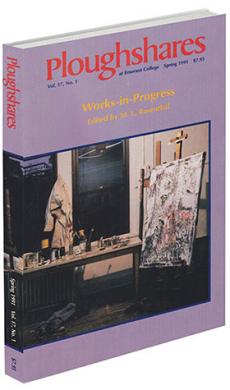rev. of Maps to Anywhere by Bernard Cooper
Bernard Cooper's
Maps to Anywhere, his first book, cannot be easily categorized. To call it, simply, a collection of essays would be an injustice. For though it charts a number of disparate courses — philosophical, whimsical meditations on such subjects as baked potatoes, art, utopia, architecture, religion, and paleontology — a narrative arc develops, edges toward literary memoir. The individual pieces are short, usually only a few pages long, akin at times to prose poems, but the elliptical passages, taken in sum, combine into a cartography of Cooper's adult vision, become points of reference for his childhood in 1950s Los Angeles. And always, the language is precise, lyrical, often dazzling.
One essay, for instance, begins with a rumination about the origin of the barber pole, then describes a haircut at Nick's Barber Shop: "I kept my eyes closed. But aware of strange and lovely afterimages — ghostly pay phone, glowing push broom — I seemed to be submerged in the rapture of the deep. The drone of the fan, the minty and intoxicating scent of Barbasol pressed upon me; phosphene shimmered like minnows in the dark corners of my vision, and I found that this world, cigar stained, sergeant striped, basso profundo, was the lost world of my father, who could not love me." These adumbrations are later explored in longer essays about Cooper's family: his manic, adulterous attorney father, who takes on cases which make the tabloid headlines ("The Miracle Chicken"); his mother, who has a love for kitsch (a pair of oven mitts, one printed with John F. Kennedy's face, the other with Jacqueline's); and his brother Gary, who is dying of leukemia, and to whom Cooper is
attracted — an incipience of homosexuality he represses ("this must be mourning, a reverie for his vanishing health, close to desire, but not desire").
The portraits are thoughtful, tender, and eventually redemptive, as Cooper spends more time with his father in his retirement and old age.
Maps to Anywhere is a unique pleasure. Cooper's curiosity is broadranging and contagious, his intelligence refreshing, his writing fine and revealing in this book's diverse topography. —
Don Lee

